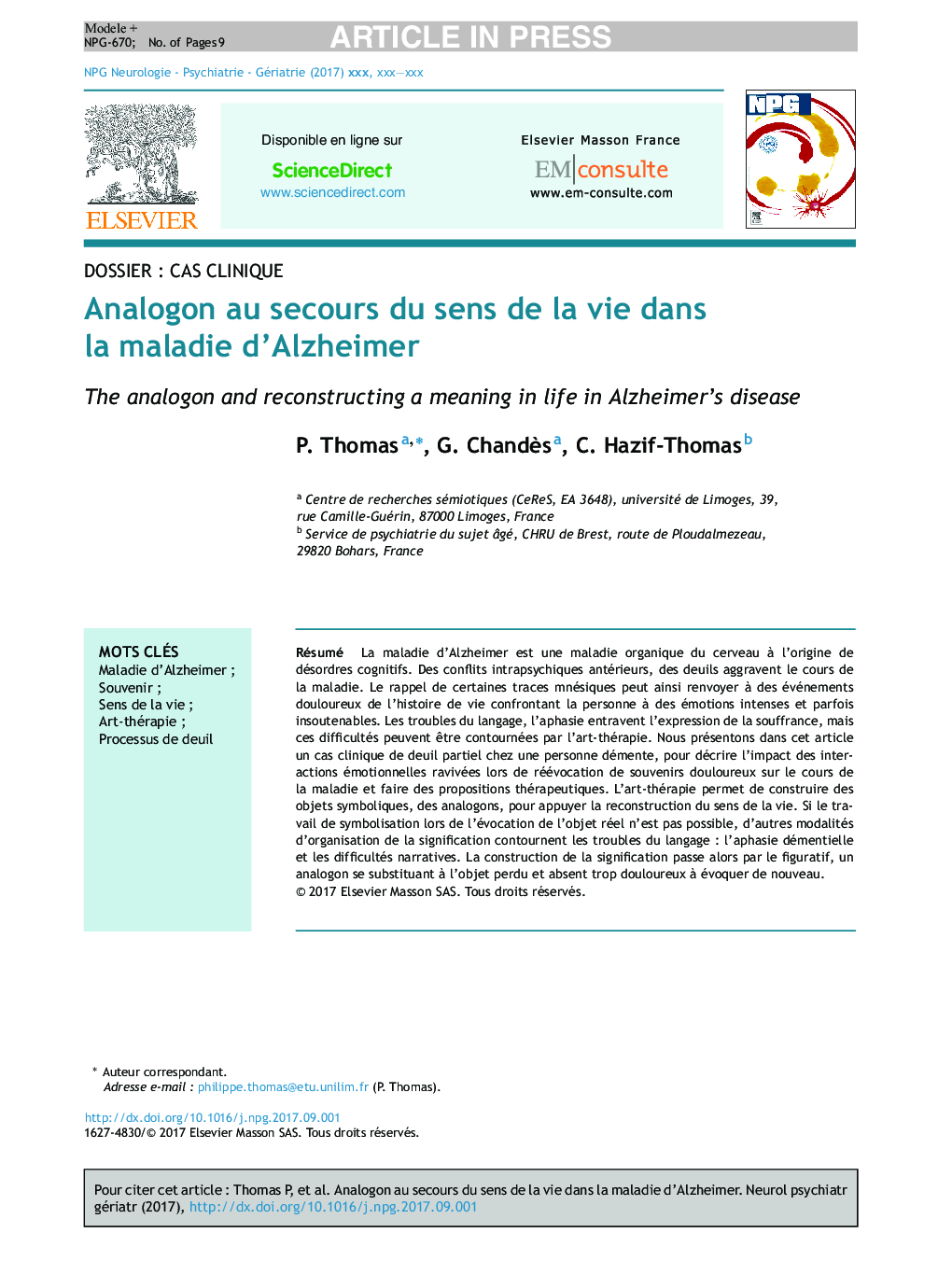| Article ID | Journal | Published Year | Pages | File Type |
|---|---|---|---|---|
| 8732710 | NPG Neurologie - Psychiatrie - Gériatrie | 2018 | 9 Pages |
Abstract
Alzheimer's disease is an organic disease of the brain leading to cognitive disturbances. Earlier intrapsychic conflicts and incomplete bereavement processes can aggravate the course of the disease. The recall of certain mnesic traces can reactivate painful events in the person's life history, confronting the person with intense and sometimes unbearable emotions. Language disturbances and aphasia hinder the expression of this suffering, but these difficulties can be by-passed by art-therapy. In this article, we present a clinical case of partial mourning in a person with dementia, in order to describe the impact of the emotional interactions revived by the evocation of painful memories on the course of the disease and to make therapeutic proposals. Art-therapy enables the construction of symbolic objects, or analogons, backing up the reconstruction of a meaning in life. While the processes of symbolization when recalling a real object lost to sight are not possible, other modes of organization of meaning side-step language deficits such as aphasia and narrative difficulties. The construction of meaning then involves figurative elements, whereby an analogon substitutes itself for a lost and absent object that is too painful to return to.
Keywords
Related Topics
Health Sciences
Medicine and Dentistry
Geriatrics and Gerontology
Authors
P. Thomas, G. Chandès, C. Hazif-Thomas,
